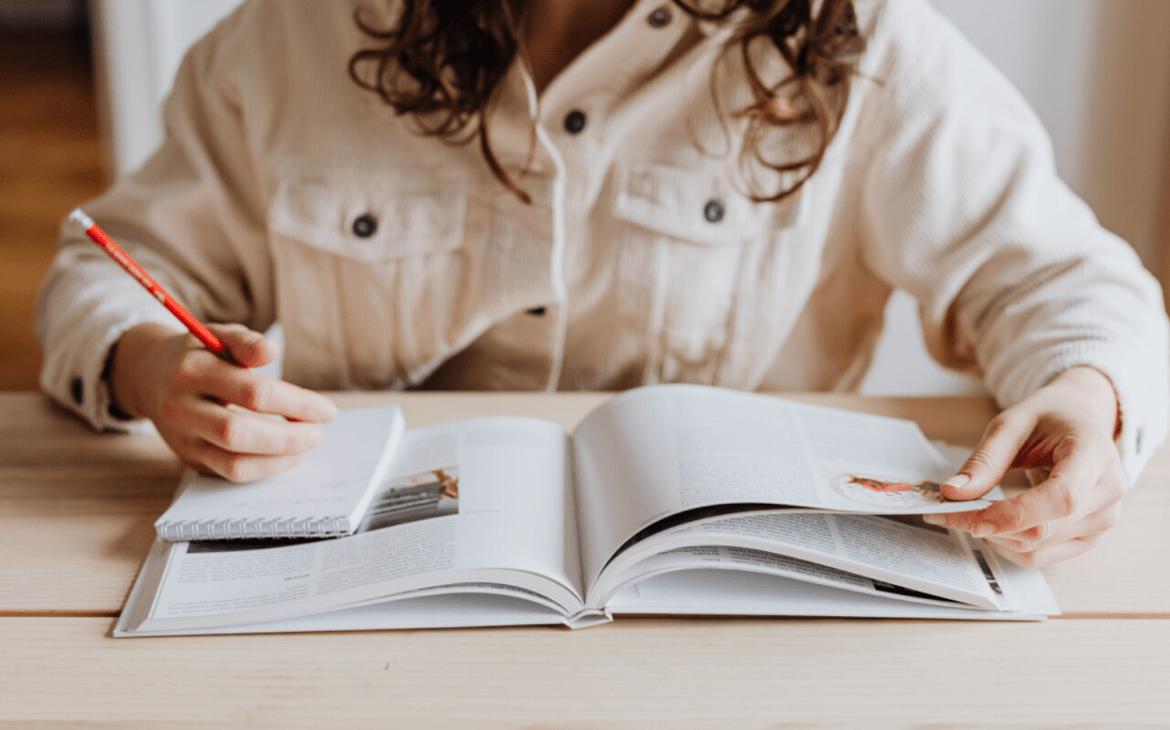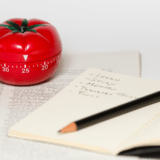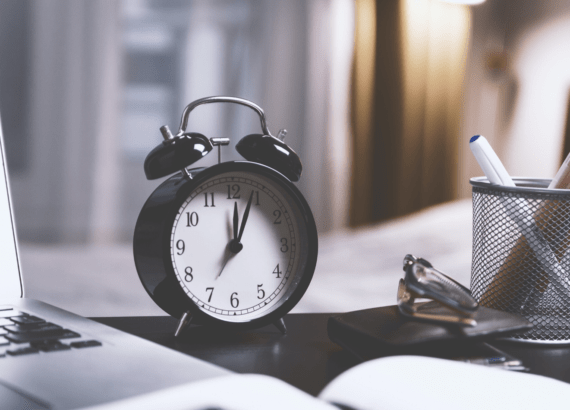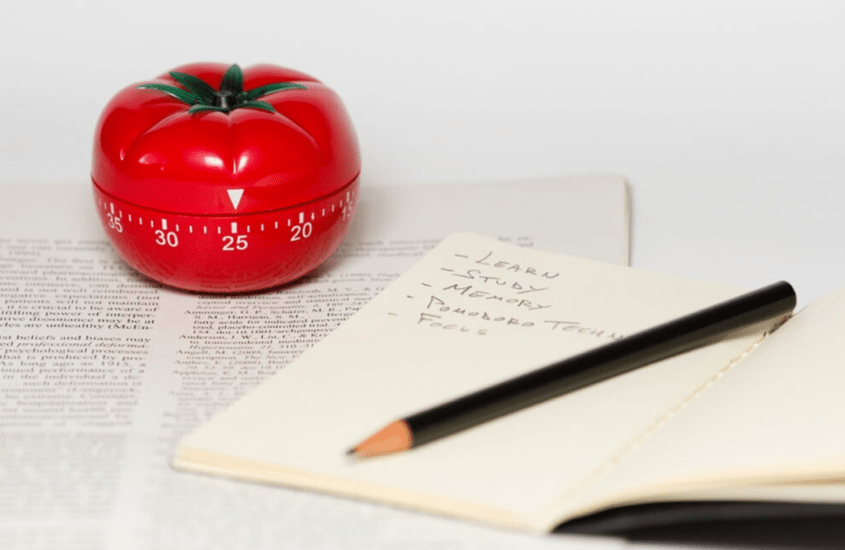You may have heard the saying, “Study smarter, not harder”. Many of us are well aware of this saying but still haven’t implemented it into our study habits, no matter how much we’ve tried.
Studying hard is okay, but it becomes useless without a strategy and good habits to accompany it. You soon realise that there simply isn’t enough time in a day, week or month, and before you know it, the day of your exam is right around the corner – you need to be as prepared as possible and you just don’t have time to waste when it comes to your studies.
There is always so much to do in such little time – deadlines, assignments, projects. Add extracurricular activities on top of that pile. Not to mention we still value our social lives. From that entire equation, you can see that everything that goes on in a typical student’s life leaves them very busy with not much time to study and revise.
With such little time, you may as well use it to its utmost potential, and get as much done as possible. As students travel through the different stages in their academics, they gradually realise how valuable time spent studying is. There’s no point squeezing in a tiny bit of study time into your hectic schedule, only for it to be so completely ineffective that you forget everything you just revised. We’ve all been there and trust, it is NOT ideal!
Many people don’t recognise the strategies behind study success. The most successful student isn’t always the one with their head buried in a textbook all night, in preparation for an exam. More often, that person is one of the less successful ones, because their idea of studying is simply to cram all the information into their head at once. While this may work for a very small percentage of students, it would be more beneficial to follow a strategy and develop good study habits that will help you far more than a late-night power cram.
This is why I stress the importance of studying smart. Spending that time in the best way possible, as if every second counts, and being productive in every study session. Studying smarter instead of harder ensures that you study in the most effective way, and still create time for other commitments. It would be so nice to have a balanced lifestyle and still get the most of your study!
More students should develop the skill of studying smarter while they’re still learning and experimenting with their study techniques. If you’d like to know how to use your time more wisely, but you don’t know how, fortunately, there are plenty of active, effective study strategies to boost your productivity during your study sessions, and a few of them are listed here in this blog post.
Study smarter, not harder, and retain more in less time.
If you ever feel like your study habits aren’t cutting it and your grades are falling, take a look at these tips that are proven to help you study smarter instead of harder:
Oh, hey! You there! Before we get any further, make sure you join my email list for news, updates, exclusive freebies and more!
![]()
Sections In This Post
1. Don’t study all at once.
This is called ‘cramming’ and almost every student has made the mistake of this at least once, right before a test. Studying all at once is NOT an effective method because you’ll quickly tire yourself out and eventually lose focus – everything you revise will go in through one ear and out through the other!
A much more effective alternative is to study in smaller chunks over a period of time. This could be by taking short breaks in between your study sessions, to give yourself time to relax, or by studying the topic a bit each day so that you don’t have to cram at last-minute!
The Pomodoro Technique is great for this, because you’re controlling how much you study at once, and you’re taking regular breaks to help with redirection of focus and perspective during your study sessions.
>> RELATED POST: What Is The Pomodoro Technique?
![]()
2. Plan for when you’re going to study.
There are many ways to plan your time, such as by using a planner or a calendar. My favourite planning method to use for my study time, which is super quick and easy to use, is a timetable! Timetables are really useful and a good starting point for learning how to study smarter, because they plan out what you’re going to study and when. Timetables are also set out for you in a nice, neat structure so that you never forget or get confused as to what you have to study. If you need a bit of discipline to when you want to study, timetables are a great way to help with this.
Timetables are also great for planning your study because you can plan around your study time and leave what’s left for other activities. By setting aside time for study, you are developing your self-management skills and establishing a routine, which will eventually turn into a habit!
Timetables are really great for planning all areas of your life, not just studying!
Furthermore, planning when and what you study is really helpful to how productive you are – you can plan exactly how you’re going to use your time and how you can get the most out of your study, in the most efficient way possible.
![]()
3. Revise the information repeatedly, but in different ways each time.
We all know that repetition helps you learn faster. I mean, it literally makes sense – if you go over the same thing over and over again, your brain is eventually going to remember it. However, there’s a strategy with repetition that helps you learn so much faster, and there’s a scientifically proven reason for it.
Repeatedly revising a topic is great, but make sure to revise it in a different method each time. Doing this will definitely help you to study smarter. If you need a bit of clarification, here’s an example – my revision process is quite simple but I’ve found it to be super helpful for retaining information over a long period of time:
- I read over the notes I made in class.
- I read my textbook chapter of what I learnt.
- I make neater and condensed notes, with reference from online revision resources, my textbook and my class notes.
- I watch a few videos to clarify my knowledge.
- I further condense my notes in a summary mind map, flashcards, or just notes.
- I do practise questions and past papers on the topic, mark it and revise my weak areas.
Obviously this revision process is slightly different for each subject – some methods work better for some subjects more than others – but this is an example of my revision repetition. I revise that topic frequently so that it sticks in my brain, but I also revise it in a different way each time, so that I develop a better understanding of it and learn it.
It’s scientifically proven that revising with different methods activates the different areas of the brain, so you’re more likely going to understand and retain the information for a long time (and you can’t argue with science, right?). You should definitely give it a go if you struggle with keeping the information in your mind after a while, as I certainly did, but this method has been really helpful for overcoming that issue.
There are other things you could do to revise as well, such as teaching someone what you’ve learnt, testing yourself with flashcards, or listening to a podcast on repeat. There are different methods for everyone and you’re sure to find a few that are effective for you!
![]()
4. Set yourself goals for each study session.
Setting yourself goals is a sure way to study smarter. One effective way to do this is by using to-do lists. By writing out a small to-do list of everything you want to get done in that study session, you’re motivating yourself to study because you’ve technically set yourself goals! Goals will help you to stay focused during your study time and monitor your progress, so to-do lists are a great way to do this.
In addition, setting yourself some goals for each study session acts as a great way for you to stay focused and productive. If you’re determined to get those goals checked off, you’ll find a way to do it, and you’ll feel super satisfied with how productive you were at the end of the day!
![]()
5. Study multiple subjects in each study session, instead of focusing on just one.
This tip is a great but underestimated way to study smarter, and it’s especially relevant to GCSE students, IB students, and any other students who are studying a variety of subjects. Exam season is usually when students have to sit all their exams for all their subjects in that period of time. It is so much more effective to revise for these subjects together in your study sessions, rather than just focusing on one and neglecting the others. You want to make sure that you give your attention to all the subjects as one.
This doesn’t mean revise your subjects equally, as we all know that we’re better at some subjects than we are at others, and so we don’t have to revise them as much. Instead, this means that you should break your study session into chunks (not equal chunks, remember) – one chunk for each subject.
It could be that at a certain time you revise Chemistry for 45 minutes, and after your break, you study English Literature for 1 hour, and then you revise Geography for 30 minutes soon after. Studying multiple subjects in a day can boost how efficiently you spend your time.
Timetables also become relevant at this point, and as mentioned before, you should totally stick to a timetable for a full day of productive revision if you want to cover as many subjects as possible in the most effective way, and therefore study smarter!
Don't be busy. Be productive. Share on X
![]()
6. Take handwritten notes.
If you want to study smarter, taking notes on a computer is a huge no-no (unless it’s on an iPad, but still). Even scientists recommend handwriting your notes, rather than typing them, as the brain is more active and more engaged with the work. Notes by hand help students to retain the information a lot better than typed notes.
I personally agree with this completely. While typing notes is definitely a lot faster, I tend to type down exactly what my teacher says, word for word, as I can keep up with the pace, and so I don’t actually learn anything. Handwriting my notes, on the other hand, helps with my engagement and focus, as I summarise what I’m writing instead. If you want to get more out of your study, handwriting your notes is for sure the way to go.
![]()
7. Use productivity apps.
Productivity apps are widely used by many students because of how useful they are. If you truly want to get the most out of your study, I recommend trying out some productivity apps. There are many different types of productivity apps, but the ones I think are most useful for studying are timers, to-do lists and app blockers.
Timer apps, such as Forest and Tide, provide a great way for you to track your progress and note how long you’re spending on your study. To-do list apps, such as Microsoft To Do and Focus To-Do, are very useful for setting yourself goals and motivating yourself in each study session, as mentioned before, and app-blockers, such as AppBlock and BlockSite, are a necessity for prohibiting you from using your phone, especially if you get distracted easily (all available on iPhone and Android).
By installing a few productivity apps on your phone, you will be making the most out of your study time through the item you probably use the most!
>> RELATED POST: 8 Game-Changing Apps That You Need To Ace Your GCSEs
![]()
8. Remove distractions.
Similarly to the last tip, removing distractions and any potential interruptions will help you stay focused during your study sessions, and keep you on top of your work. For me, my phone is a huge distraction, so I personally love using the Forest app as it uses the tree’s life to block me from leaving the app to go on social media. Cool right? I think so – it’s super helpful and a great app!
For other people, distractions could be noisy siblings, television, background noise etc. Separate yourself from anything that could steal your focus during your studying, and keep yourself productive with the task.
![]()
9. Get in the zone.
To get the most out of the time you have for studying and study smarter, you have to completely immerse yourself in a study environment that will optimise your focus and minimise distractions.
This means gathering everything you need to study and laying them out beforehand, including your laptop, textbooks, worksheets, etc. You don’t want to have to get up from your desk chair in the middle of your revision, just to fetch items that weren’t already in front of you – this would just cause more distractions and you won’t be as productive.
Also, if you’re going to be studying for a while, you may as well make yourself comfortable. I personally love listening to music while I work – it doesn’t distract me in the slightest and, in fact, it blocks out the background noise from any commotion going on in my house. If this isn’t an option for you, you could light a candle and keep it nearby, or put on some lo-fi tunes. Anything to keep you in the zone and focused on your work.
![]()
10. Review what you learnt that day, every day.
A lot of students don’t bother to go over what they learnt in school that day, and often find themselves quickly forgetting the content as a result. By having a quick 10 to 20-minute review session straight after school each day, you’ll be reminding yourself of the content you learnt earlier, and you’ll be giving yourself a head-start for any later revision of that topic in the future.
>> RELATED POST: 5 Easy Ways To Improve Your Study Habits
![]()
11. Summarise the information.
Condensation and summarization are really effective ways to study smarter. Instead of just copying out of the textbook, your brain is processing the information and turning into your own words when you condense your notes, and this therefore helps you understand the information a lot better. I try to make condensed notes of an entire topic onto one side of one sheet of A4 paper so that I know I can fit only the most necessary information on it and avoid writing anything else.
Summarisation also works with mind maps and summarised flashcards. In fact, summary flashcards are also a great option because the small area of the A6 card literally forces you to condense the information onto it, which is super useful.
![]()
12. Test yourself at the end of each study session.
A good habit to get into, that will help you to study smarter, is testing yourself after each study session. This is extremely useful for two reasons: it acts as a review method, so that you can go over what you’ve just learnt, and it acts as an active recall method, so that you can test what you’ve learnt and identify your weak areas.
Practice questions and past papers are excellent ways to test yourself, as you can track your progress by yourself and quickly identify, and then fix, your weak areas, before the day of the exam.
It’s incredibly common for the students who perform the best in exams to be using past papers on a regular basis. They’ve realised that to study smarter, you also need to develop the technique of self-testing, and familiarise yourself with the exam, so you know what to expect and nothing catches you off-guard. Past papers are seriously one of the best ways to revise, but that’s for another blog post!
Self-testing is proven to be a very effective revision technique, so by implementing a bit of it into your study sessions each day, you’ll see amazing results in no time!
![]()
13. Focus on learning the content.
Lastly, try not to focus on getting that particular grade. Believe me, I know how hard this is – it’s always good to strive hard to achieve a grade and reach your personal goals, but it’s also important to remember that the grade is not the end goal. If you focus on getting a certain grade, you’re likely to quickly get stressed and frustrated if things don’t go your way.
Focus on the process, not the outcome.
Contrarily, if you focus on actually learning the content, and enjoying what you’re learning, you’re going to get a lot more out fo your study. It’s much easier to retain the information on a subject you get to enjoy, so try it and see what happens!
![]()
Your Takeaway…
This was a lengthy but hopefully very helpful blog post on ways to study smarter. I’ve had my fair share of study mistakes and revision failures, and I just know there’s more to come – after all, that’s how we learn. However, these are just the tips I’ve gathered that have helped me study smarter, and they’ve truly worked!
While I encourage you all to make your own mistakes and then learn from them too, hopefully this blog post is a useful guide as to the easiest and best ways to study smarter instead of harder. Implement these tips into the way you study and start seeing amazing results fast! To quickly recap:
- Don’t study all at once.
- Plan for when you’re going to study.
- Revise the information repeatedly, but in different ways.
- Set yourself goals for each study session.
- Study multiple subjects in each study session, instead of focusing on just one.
- Take handwritten notes.
- Use productivity apps.
- Remove distractions.
- Get in the zone.
- Review what you learnt each day.
- Summarise the information.
- Test yourself at the end of each study session.
- Focus on learning the content.
I quite enjoy reading and writing these advice type blog posts – scrolling through Pinterest, these blog posts are always the ones that catch my eye first! I think you should definitely expect loads more similar posts from me!
If you enjoyed this post, you might also enjoy some of these posts too!:
- 8 Game-Changing Apps That You Need To Ace Your GCSEs
- 5 Easy Ways To Improve Your Study Habits
- What Is The Pomodoro Technique?
If you have any comments, questions or contributions, please feel free to comment them down below! I’m always checking and responding to comments!
Thanks for reading and have fun studying smarter, not harder!

![]()














Amara
I used to find it very difficult to concentrate on studying, but this blog post has really helped me overcome that! Thank you!
Chineme Iloh
Hi, I’m glad to hear that! It’s so easy to get distracted when studying, but these tips are great ways to resolve that and stay productive. Thanks for reading! Chineme x